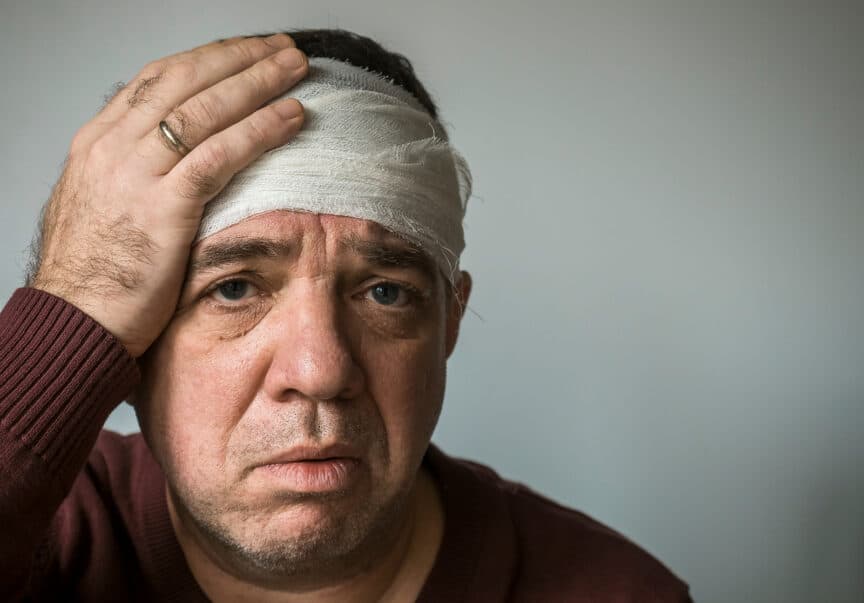Meniere’s disease is an inner ear disorder that can affect hearing health and balance. Named after a French doctor who first identified the disorder in 1861, meniere’s disease impacts 1 out of 1,500 people. It is a relatively rare condition but one that there are no cures for. There are effective ways symptoms are managed, reducing the impact of meniere’s disease.
Causes
Meniere’s disease is characterized by an accumulation of fluid or pressure in the inner ear. There are no exact causes of this but experts have a few ideas. They suggest it can be caused by allergies, contributed blood vessels, viral infections, or autoimmune conditions. Genetics may also play a part in the development of meniere’s disease. It is estimated that 7-10% of those with the condition have a family history of it. Meniere’s disease can impact people of all ages but people with the condition tend to be above the age of 40.
Symptoms
Meniere’s disease can be experienced differently from person to person. Symptoms can also align with various conditions, often making it challenging to diagnose meniere’s disease. But there are four specific symptoms that point to it:
- Sounds and speech are muffled, hearing challenges, or hearing loss.
- Sense of pressure or fullness in the impacted ear.
- Tinnitus which is a ringing or buzzing like noise in the ear.
- Sudden dizzy spells.
Episodes of dizziness can last anywhere from 20 minutes to a few hours. Dizziness can also occur in the form of single spells or longer periods of dizziness that occur regularly. This can even contribute to a loss of balance, causing one to fall which is known as a drop attack.
Link Between Meniere’s Disease, Balance Issues, & Hearing Loss
Meniere’s disease occurs in the inner ear. The inner ear houses critical components for both hearing and balance systems. This includes the cochlea which is filled with thousands of sensory cells that receive and process incoming soundwaves. These cells then send auditory signals to the brain which continues processing and assigning meaning to these signals, allowing us to understand what we hear. The inner ear also contains semicircular canals and otolith organs which are part of the vestibular system – the sensory system for balance. These components contain receptors that send signals to the brain about the body’s position, motion, and movements in relation to space.
The fluid that builds up in the inner ear, characteristic of meniere’s disease, can then affect both hearing and balance. This excess fluid can interfere with and disrupt the signals that are sent from the sensory cells in the cochlea or the balance organs to the brain. This causes the brain to either not receive or experience glitches with audacity and balance information, causing hearing loss and/or balance issues.
Diagnosing Meniere’s Disease
Diagnosing meniere’s disease involves assessing and identifying symptoms. Your doctor will likely refer you to an ear specialist like an ENT (ear, nose, throat) doctor, also known as an otolaryngologist. There is not one evaluation or diagnostic tool that is used to diagnose meniere’s disease. Rather, you will discuss the symptoms you’ve been experiencing as well as your medical history. The specialist may perform a hearing test to evaluate your hearing health as well. Hearing tests involve a painless and noninvasive process that measures hearing capacities in both ears. If these four symptoms that are essential for meniere’s disease – tinnitus, hearing challenges, dizzy spells, and pressure in the ears are identified, you may be diagnosed with meniere’s disease.
Treatment
Meniere’s disease is a chronic medical condition without a cure. Strategies for treatment often focus on alleviating symptoms and reducing the impact of the condition. Treatment options include:
- Medications: your doctor may prescribe medications to alleviate sommcon symptoms like nausea and dizziness.
- Injections: treatment to alleviate vertigo can include receiving steroid injections in the middle ear.
- Dietary & behavioral changes: your doctor may recommend eliminating triggers that can worsen symptoms. This includes smoking, drinking, as well as intake of caffeine and chocolate.
- Pressure pulse treatment: the FDA recently approved a device that is worn behind the ear. This device delivers intermittent air pressure pulses to the middle ear which can help alleviate dizziness.

